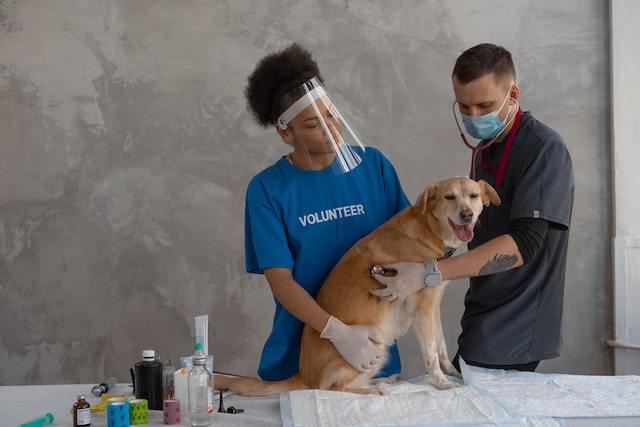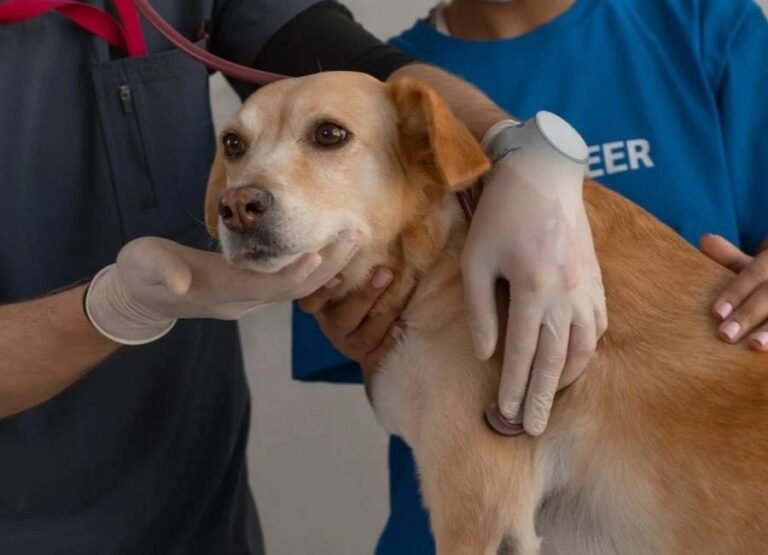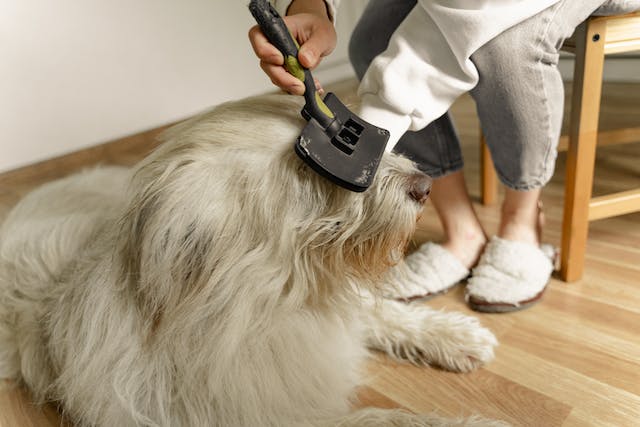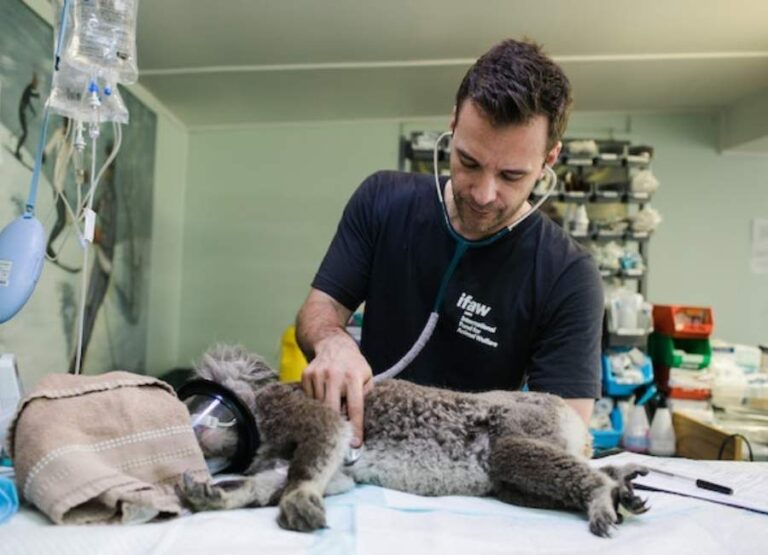Why Is My Chihuahua Shaking: 10 Top Reasons & More

Dogs shake for a variety of reasons, which is why Chihuahua owners always ask why is my Chihuahua shaking and that is exactly what we will be discussing!
There are lots of things that can lead to Chihuahuas shaking or trembling which we are going to outline and discuss.
When you notice your Chihuahua shaking, and it’s not associated with excitement, fear of cold weather, don’t hesitate to call your veterinarian.
Let’s dive into the common reasons for your Chihuahua shaking!
Why Is My Chihuahua Shaking
Excitement, stress, cold weather, seizure symptoms, generalized tremor syndrome, age, medical concerns, or signals of Chihuahua death can all cause Chihuahuas to tremble.
Shaking is a common response to some behavioral and environmental situations, but it may also be a warning indication in other situations.
The following are some of the most common causes of Chihuahua shaking:
1. Sign of generalized tremor syndrome in Chihuahuas
Chihuahuas, miniature pinschers, and Shih Tzus are all susceptible to generalized tremor syndrome.
Full-body tremors, comparable to when a dog feels cold, describe this illness, also known as shaker syndrome.
The symptoms of generalized tremor syndrome vary from dog to dog, however, it commonly begins between the ages of 6 months and 23 months in Chihuahuas.
Although no one knows what causes widespread tremor syndrome, it is generally assumed to be harmless.
Corticosteroids may be prescribed by your veterinarian, however, shaking may be an inescapable part of life for certain dogs.
2. Possible distemper virus attack
Distemper is a virus that mostly affects puppies and young dogs that have not been fully vaccinated.
The distemper virus affects the gastrointestinal, neurological, and respiratory systems. The signs and symptoms of distemper are usually fatal.
Distemper must be treated by a veterinarian. Call your veterinarian right away if you suspect your Chihuahua has canine distemper.
The good news is that because most Chihuahuas are vaccinated, distemper is uncommon in them.
Distemper is characterized by shaking and shivering, as well as other symptoms such as cough, fever, lethargy, reduced appetite, vomiting, eye discharge.
3. Sign of cold in Chihuahuas
A Chihuahua’s typical body temperature is between 101 to 102.5 degrees Fahrenheit, which implies that if the room or ambient temperature dips, your Chihuahua will be impacted.
Even though some Chihuahuas have lengthy coats, they can get chilly; however, this is entirely dependent on where you live.
If the temperature in the surroundings lowers to a level that your Chihuahua can’t withstand, he may begin to shake.
So, the next time your Chihuahua shakes, think about the temperature of your surroundings.
Some useful hints for dealing with cold symptoms in Chihuahuas:
- Allowing your Chihuahua outside when the temperature is too chilly is a bad idea.
- During the winter, never give your Chihuahua a cold bath.
- Please keep your pup’s room warm when the weather or your house is too chilly.
- If the shaking remains after you’ve tried warming up your room, don’t hesitate to take your Chihuahua to the doctor.
- If you live in a chilly climate, a dog cold jacket is a good investment.
- Try warming up your Chihuahua with a dog jacket, some exercise, or a change of scenery.
4. Sign of chronic pains and muscle tremors
If your older Chihuahua shakes or chills, especially in his hindquarters, he might be suffering from canine arthritis.
Infections, injuries, and even dental difficulties in little pets like Chihuahuas can cause a lot of suffering.
Your veterinarian may prescribe additional diagnostic tests and/or pain treatment, depending on the reason for your pup’s suffering.
Shaking, shivering, and muscle tremors can be signs of serious illnesses including distemper, hypoglycemia, Addison’s disease, and inflammatory brain disease, as well as less serious disorders like stomach pain.
Too many aches can lead Chihuahuas to shiver or shake involuntarily, so keep an eye on your Chihuahua if you see involuntary shaking.
5. An indication of enthusiasm
When a Chihuahua’s family member returns home, the Chihuahua is ecstatic since they were bred to thrive on human connection.
This zeal can be seen flowing from the dog’s pores, resulting in trembling or shaking, although this is not an indication of fear or disease.
Chihuahuas may quiver and shiver as they are about to eat their favorite meal or play with their favorite toy in a similar way.
Arriving home late at night may lead some Chihuahuas to shake, howl, and even pee with excitement; however, this is unrelated to disease.
While some of these behaviors are prevalent in companion dogs like Chihuahuas, keeping your greetings cool and quick might help your Chihuahua relax.
6. A Seizure symptom
Epilepsy is a neurological disorder that causes dogs to collapse and jerk. It affects both large and small dogs, as well as other animals.
While seizures are unlikely to cause physical harm to the dog, they may cause injury if the dog falls or knocks things over and into itself.
If your Chihuahua starts having seizures, see your veterinarian straight away. This can be treated with seizure control medications.
Other symptoms of seizure in Chihuahuas include collapsing, jerking, stiffening, muscle twitching, loss of consciousness, tongue chewing, foaming at the mouth.
7. Symptoms of Old Age
There’s nothing you can do to aid Chihuahuas that quiver or shiver as they become older.
This is due to the fact that their joints are weak and old, and they can no longer comfortably sustain their bodies’ weight.
Tremors in both the back and front legs are more common in elderly Chihuahuas, making it difficult for them to move correctly and resulting in shaking or shivering.
Here is a more concise post about signs your dog is dying of old age.
8. A sign of toxin ingestion
Some substances are harmless to humans but deadly to tiny dogs such as Chihuahuas.
Please take your Chihuahua to the veterinarian if you suspect or observe that he has ingested anything possibly harmful or has been bitten by a tiny animal.
Nicotine is a poisonous ingredient found in cigarettes, and xylitol is a sugar replacement found in many chewing gums; both are harmful to tiny dogs such as Chihuahuas.
These toxins or poisons can cause excessive shaking and shivers in tiny dogs like Chihuahuas.
Your Chihuahua might be stung by a bee, bitten by a snake, poisoned by bad food, or stung by scorpions.
This is a serious concern even if you don’t see your dog come into contact with something hazardous.
Because of their physical weight and strength, little dogs like Chihuahuas react quickly to toxins.
9. Sign of hypoglycemia
Hypoglycemia is defined as a sudden drop in blood sugar. When your Chihuahua’s body is low on sugar, it starts shaking.
Hypoglycemia, a medical condition characterized by trembling and shaking in Chihuahuas, is also a possibility.
This issue is more common in puppy Chihuahuas because their capacity to control sugar levels in their blood has not fully evolved (up to 6 months).
Hypoglycemia can cause your Chihuahua to lose consciousness or, in the worst-case situation, death if left untreated.
Hypoglycemia can be caused by a variety of factors, including stress, malnutrition, and even being the runt of the litter.
10. Sign of nausea
Chihuahuas quiver a lot when they are constipated or have chronic nausea and diarrhea, which is easily noticeable.
Chronic nausea can also cause trembling after lengthy car rides or after eating unappealing foods.
Chronic nausea causes vomiting, drooling, loss of coordination, shaking, and yawning.
Take into account your daily routine, what they eat, and how your Chihuahua is impacted if he shakes a lot.
The tremors in your Chihuahua, for example, might be produced by that fantastic automobile trip you take every day.
Shaking in Chihuahuas can be seen as one of Chihuahua’s sick symptoms.
Specific forms of shaking in Chihuahuas
Here are some common and specific forms of shaking in Chihuahuas you should know;
Chihuahua shaking and vomiting
An upset stomach in a Chihuahua can be caused by anything the Shih Tzu ate, such as a poisonous plant, onion ball, garlic ball, or poisoned substance.
A bloated stomach, pancreatitis, or renal sickness can also cause Chihuahuas shaking and vomiting.
Trembling and vomiting in your Chihuahua are symptoms that something is wrong, and they should visit a doctor as soon as possible.
Keep track of how frequently they’re vomiting, as well as the amount and color of their vomit, and contact your veterinarian as soon as possible if it doesn’t cease within a few hours.
Chihuahuas shaking back legs
Patellar luxation or generalized tremor syndrome, which is common in small breeds such as Chihuahuas, miniature pinschers, and Shih Tzu, might be the cause of Chihuahua hind limb shaking.
Remember that shaking doesn’t always mean your dog has a neck or spinal injury or a neurological issue; nevertheless, if you’re still concerned, get medical advice.
The most common causes are worry, a cold, or tremors that develop with age.
Patellar luxation, commonly known as sliding or floating kneecaps, is a common ailment that affects many dogs’ hind legs, especially small breeds like Chihuahuas.
The patella is the technical name for a kneecap, and luxation simply means that it has fallen out of place.
Chihuahuas shaking head
Ear infections, flea bites on the head skin, allergies, and head tremors as a result of a head injury can all cause a Chihuahua’s head to shake.
Shaking heads in Chihuahuas can be caused by old age or other ailments.
Chihuahuas pets are prone to ear infections due to the way their ears hang down, and ear infections are one of the most prevalent reasons why their owners see their veterinarian each year.
Shaking of the head in Chihuahuas can indicate an ear infection, ear mites, parasites, allergies, hematoma, toxins, or even balance concerns as your dog ages.
Examine their ears and contact your veterinarian if nothing appears to be amiss but the behavior persists.
Chihuahuas shaking and panting
Stress, more severe pain, discomfort, poisoning, renal sickness, injury, allergic reactions, toxins, bites, and stings are all common causes of excessive panting and shivering in Chihuahuas.
Never take your Chihuahua’s shaking for granted, even if it isn’t due to excitement; regardless of the cause, book an appointment with your veterinarian.
With the information provided on this page, I strongly believe your question Why Is My Chihuahua Shaking was answered!
You may also like…

![Hairballs in Dogs [Causes, Signs & Remedies] Hairballs in Dogs](https://petcreeks.com/wp-content/uploads/2023/12/pexels-anna-bondarenko-7391070-300x200.jpg)


![Trauma in Dogs [Signs, Causes & Solutions] Trauma in Dogs](https://petcreeks.com/wp-content/uploads/2023/12/pexels-mikhail-nilov-7469228-300x200.jpg)

![Head Trauma in Dogs [Signs, Causes & Treatment] Head Trauma in Dogs](https://petcreeks.com/wp-content/uploads/2023/12/pexels-mikhail-nilov-7469230-300x200.jpg)



![Ear Infections in Dogs [Signs, Causes & More] Ear Infections in Dogs](https://petcreeks.com/wp-content/uploads/2023/09/pexels-mikhail-nilov-7470755.jpg)

